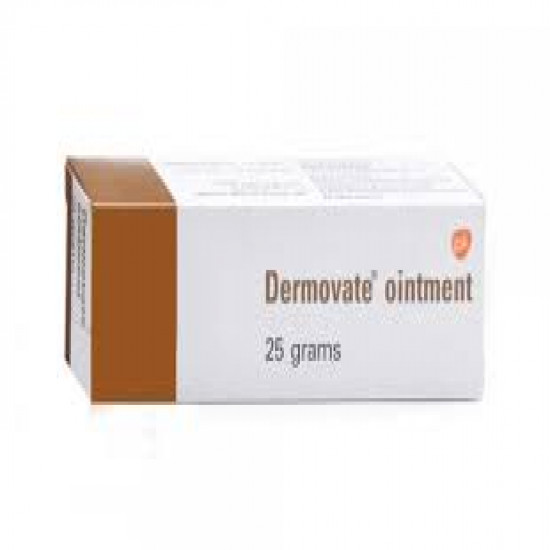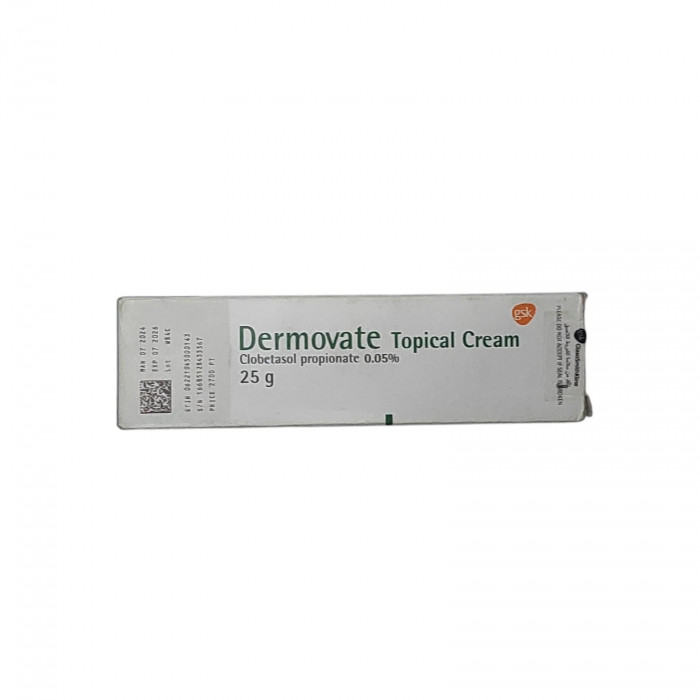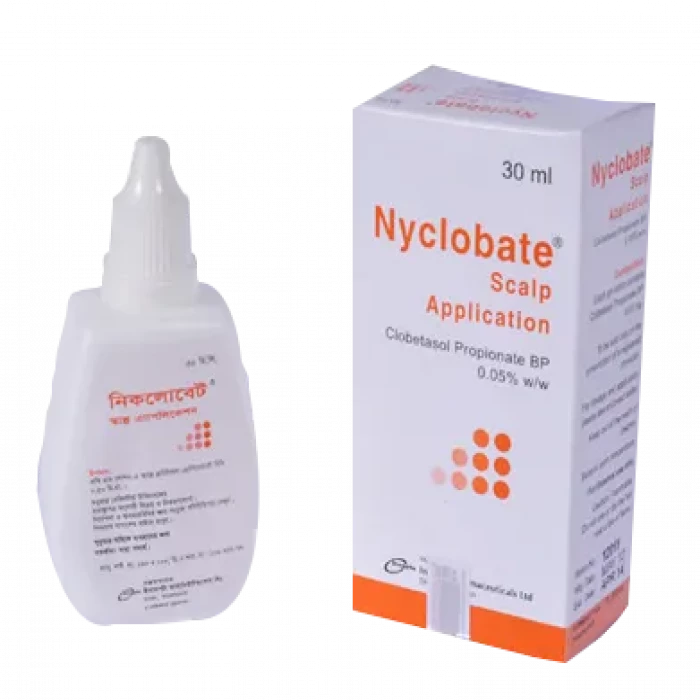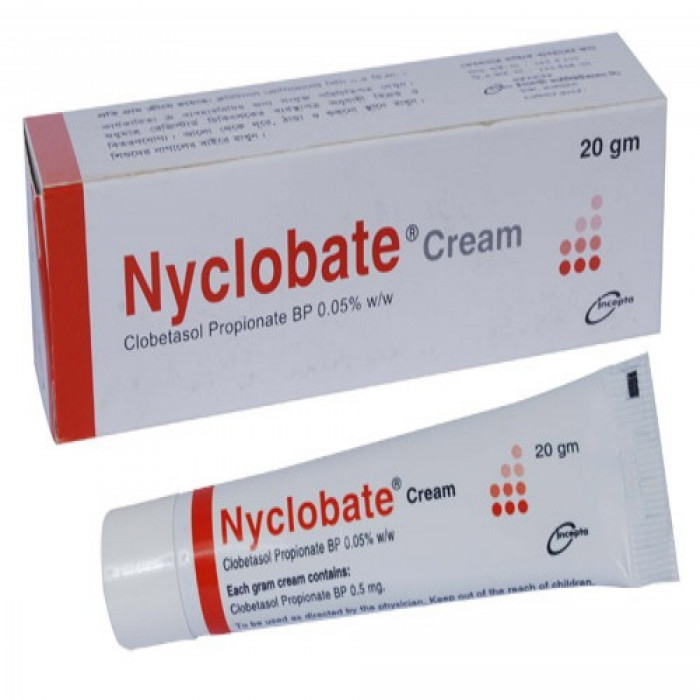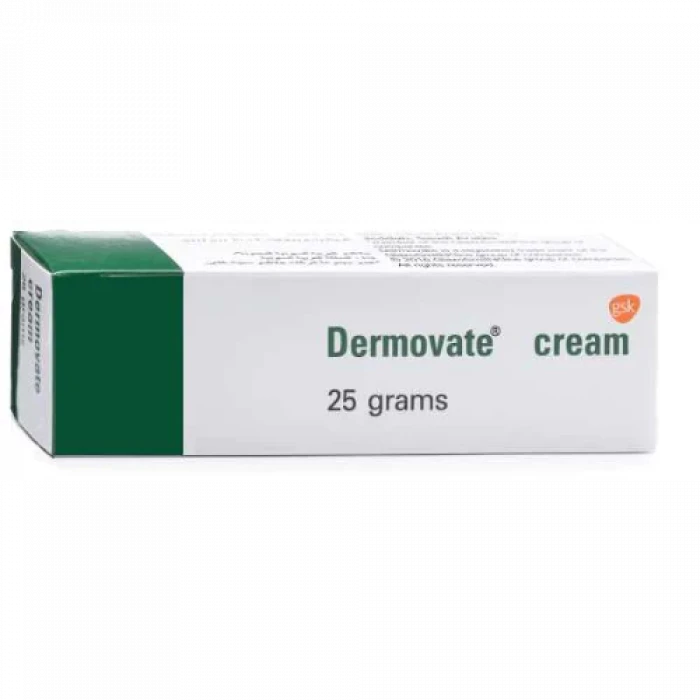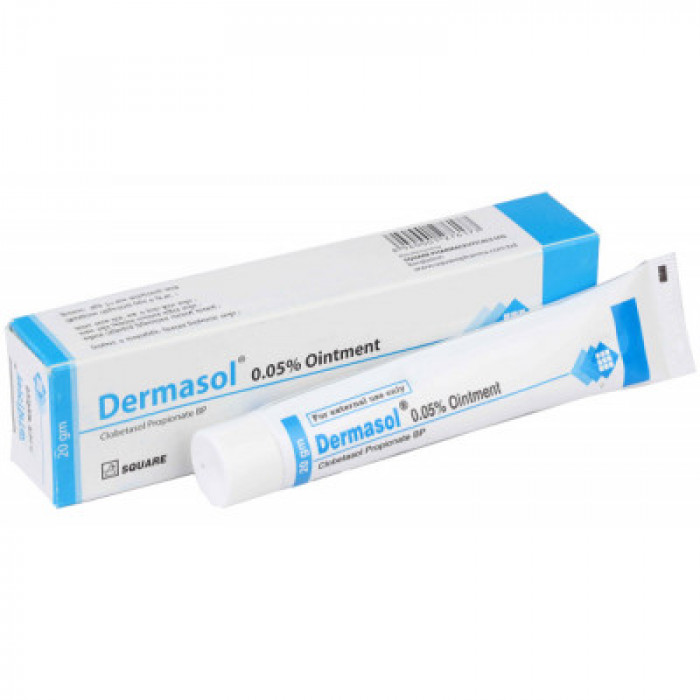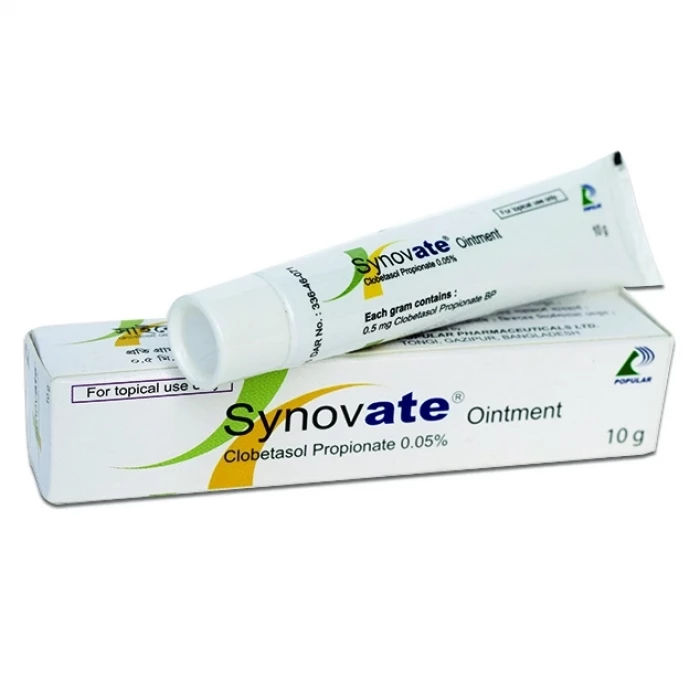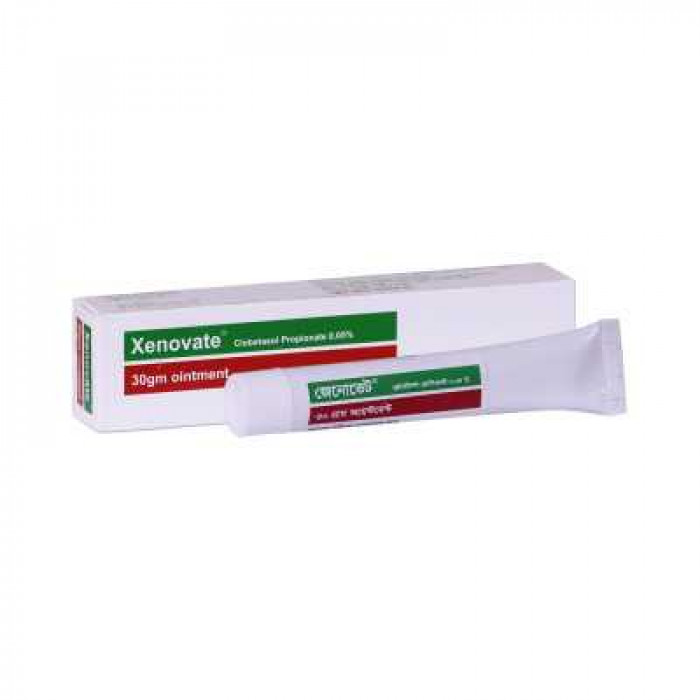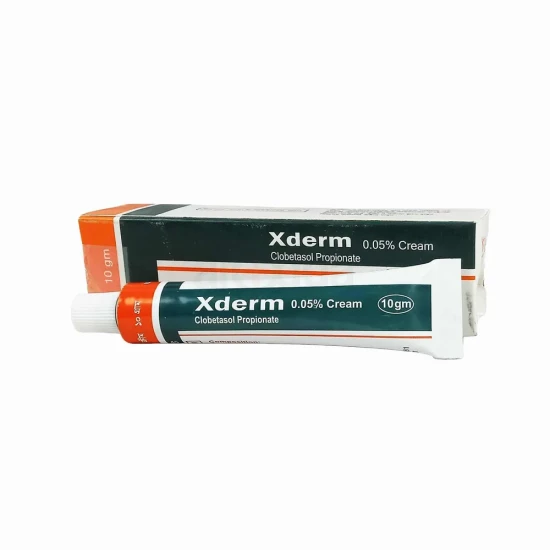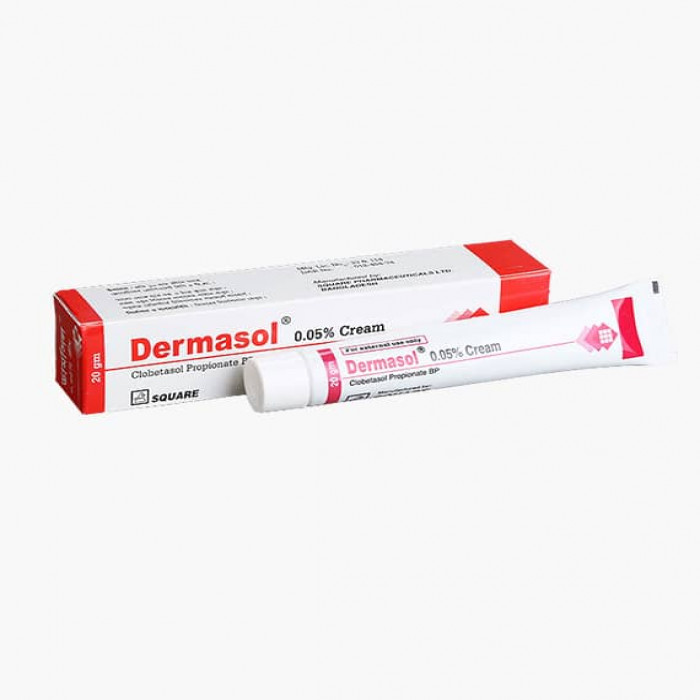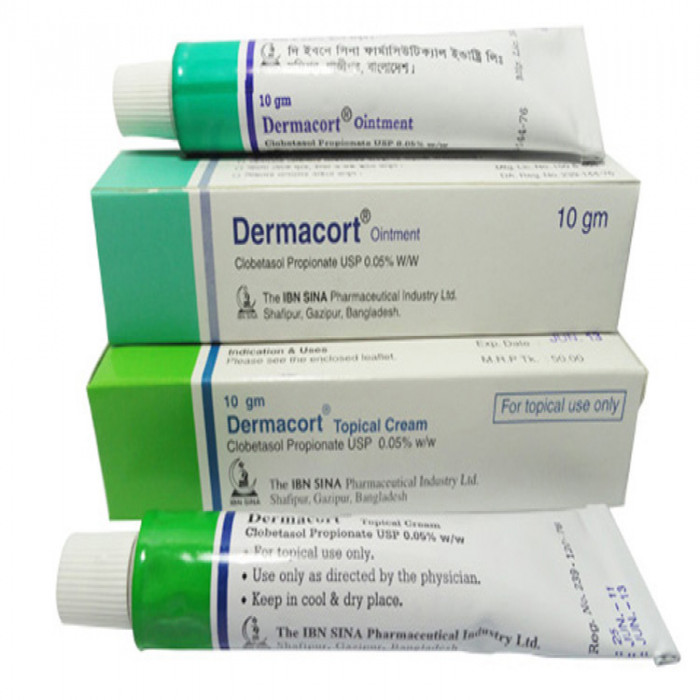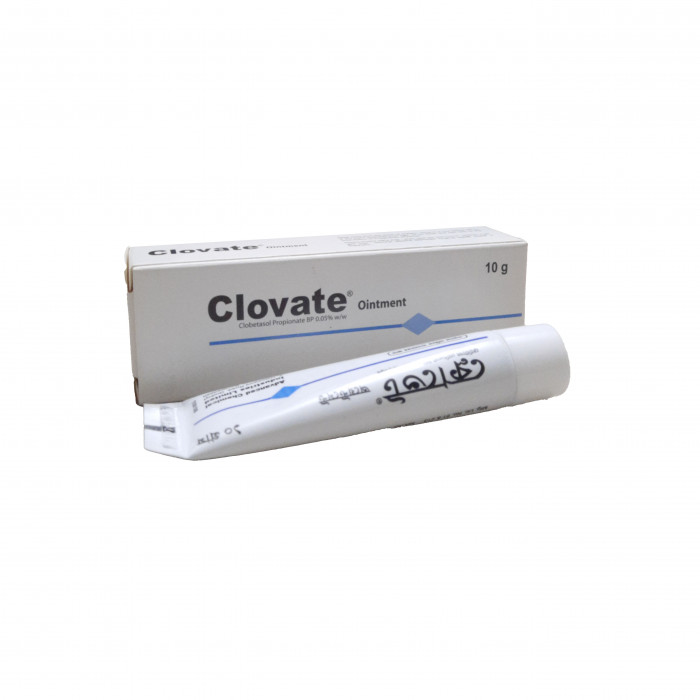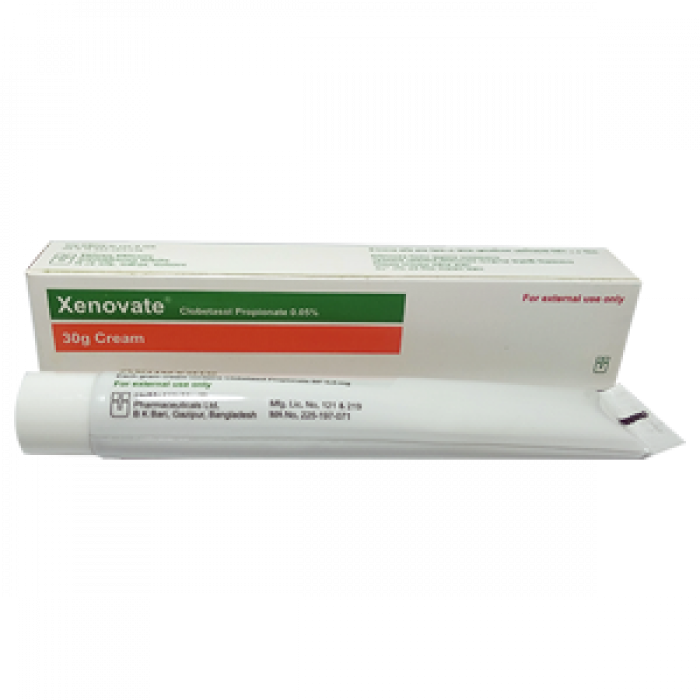
✔ 100% Authentic Product
👁️ Currently Viewing 2936
Xenovate 0.05% Cream
- Xenovate 0.05% Cream contains the active ingredient Clobetasol and is a topical corticosteroid used for skin conditions.
- It helps alleviate symptoms like red, scaly patches (Psoriasis), intense itching due to heat or sweating, and swollen, itchy purple patches (Lichen planus).
Discount
Price: ৳ 133
MRP:
৳
140
5%
Off

100% Genuine Products, Guaranteed

Safe & Secure Payments, Always

Fast, Secure & Efficient Delivery

Proper Packaging
 Cash on Delivery - All over Bangladesh
Cash on Delivery - All over Bangladesh Regular Delivery - 12-24 Hours, Dhaka City* Charge Tk.39-59
Regular Delivery - 12-24 Hours, Dhaka City* Charge Tk.39-59 Regular Delivery - 24-48 Hours, Other Cities* Charge Tk.99-110
Regular Delivery - 24-48 Hours, Other Cities* Charge Tk.99-110
 ফ্রি ডেলিভারিঃ - ৯৯৯ টাকা+ অর্ডারে, ঢাকা
শহরে
ফ্রি ডেলিভারিঃ - ৯৯৯ টাকা+ অর্ডারে, ঢাকা
শহরে ফ্রি ডেলিভারিঃ - ২৯৯৯ টাকা+ অর্ডারে, ঢাকার
বাহিরে
ফ্রি ডেলিভারিঃ - ২৯৯৯ টাকা+ অর্ডারে, ঢাকার
বাহিরে
100% Genuine Products, Guaranteed
Safe & Secure Payments, Always
Fast, Secure & Efficient Delivery
Proper Packaging
 Cash on Delivery - All over Bangladesh
Cash on Delivery - All over Bangladesh Regular Delivery - 12-24 Hours, Dhaka City* Charge Tk.39-59
Regular Delivery - 12-24 Hours, Dhaka City* Charge Tk.39-59 Regular Delivery - 24-48 Hours, Other Cities* Charge Tk.99-110
Regular Delivery - 24-48 Hours, Other Cities* Charge Tk.99-110 ফ্রি ডেলিভারিঃ - ৯৯৯ টাকা+ অর্ডারে, ঢাকা
শহরে
ফ্রি ডেলিভারিঃ - ৯৯৯ টাকা+ অর্ডারে, ঢাকা
শহরে ফ্রি ডেলিভারিঃ - ২৯৯৯ টাকা+ অর্ডারে, ঢাকার
বাহিরে
ফ্রি ডেলিভারিঃ - ২৯৯৯ টাকা+ অর্ডারে, ঢাকার
বাহিরে
✅ Description:
Xenovate 0.05% Cream contains Clobetasol, a topical corticosteroid used in adults and adolescents (12 years and above) to treat inflammatory skin conditions like psoriasis, eczema, and dermatitis unresponsive to milder steroids. Psoriasis speeds up skin cell growth, causing red patches with silvery scales, while eczema leads to dry, itchy skin and rashes on various body parts.
Avoid using Xenovate 0.05% Cream for bacterial, fungal, or viral infections. Inform your doctor if you have skin infections, diabetes, adrenal issues, planned surgery, acne, plaques around sensitive areas, or liver disease before using this cream.
Use Xenovate 0.05% Cream during pregnancy if advised by your doctor, with caution during breastfeeding. It's not for children under 12. Common side effects include skin thinning, widened veins, discomfort, and dryness. Consult your doctor if symptoms worsen or persist.
Safety Advices

Alcohol
UNSAFE
Interaction with alcohol is unknown.

Pregnancy
CONSULT YOUR DOCTOR
Xenovate 0.05% Creamshould be used during pregnancy only if recommended by your doctor. Consult your doctor before using Xenovate 0.05% Cream.

Breastfeeding
CONSULT YOUR DOCTOR
Xenovate 0.05% Cream should be used with caution by breastfeeding women. Consult your doctor before using Xenovate 0.05% Cream.

Driving
CAUTION
Xenovate 0.05% Cream is not expected to have any effects on your ability to drive and use machines.

Kidney
CONSULT YOUR DOCTOR
Xenovate 0.05% Cream should be used with caution in patients with Kidney disease. Consult your doctor before using Xenovate 0.05% Cream.

Liver
CONSULT YOUR DOCTOR
Xenovate 0.05% Cream should be used with caution in patients with Liver disease. Consult your doctor before using Xenovate 0.05% Cream.
✔️ Uses of Xenovate 0.05% Cream
The medication is used for the treatment of conditions like:
- Dermatitis
- Psoriasis
- Lichen Planus
- Allergic Skin Reaction
✔️ How does Xenovate 0.05% Cream work?
Xenovate 0.05% Cream belongs to corticosteroids. It works as an anti-inflammatory by inhibiting the metabolism of arachidonic acid by inhibiting phospholipase A2 thus inhibiting the production of inflammatory mediators like prostaglandins and leukotrienes.
✔️ Side Effects of Xenovate 0.05% Cream
- Application Site Reactions (Burning Sensation)
- Dry Skin
- Redness Of Skin
- Itching Of Skin
- Body Pain
✔️ Quick Suggestions:
- Clobetasol is used to treat redness, swelling, itching, and discomfort of various skin conditions.
- It should be applied to the affected areas as a thin film, two times daily, or as advised by your doctor.
- Do not use it more often or for longer than advised by your doctor.
- Do not cover the area being treated with airtight dressings such as bandages unless directed by a doctor, as this may increase the risk of side effects.
- If you think the area of skin you are treating has become infected you should stop using Clobetasol and consult your doctor.
- Consult your doctor if your skin condition has not improved after four weeks of treatment. Do not use it for more than 4 consecutive weeks at a time.
✔️ Indication
Clobetasol Propionate applies to adults, the elderly and children over 1 year of age with secondary skin disease.
- Psoriasis (excluding widespread psoriasis plate)
- Intractable skin disease
- Lichen planus
- Discoid Lupus erythematosus
- Other skin conditions that do not respond satisfactorily to strong steroids below
✔️ Pharmacology
Clobetasol propionate is a highly potent topical corticosteroid with anti-inflammatory, antipruritic, and vasoconstrictor properties. It acts through various mechanisms to inhibit advanced allergic reactions, including reducing mast cell density, eosinophil activation, and chemotaxis. Additionally, it curbs cytokine production and inhibits arachidonic acid metabolism.
✔️ Dosage & Administration of Xenovate 0.05% Cream
For adults, the elderly, and children over 1 year of age, the application of Clobetasol Propionate Cream involves gently applying a thin layer to the affected skin areas twice daily. Repeated short courses can be used for exacerbations, and for more resistant lesions with hyperkeratosis, enhancing effects can be achieved by covering the area with polythene film overnight. This super-high potency corticosteroid should be used for a maximum of 2 consecutive weeks, with a weekly dose not exceeding 50 grams. For children, courses should ideally be limited to five days and reviewed weekly.
Clobetasol Propionate is administered topically on the skin's surface. Creams are suitable for moist or weeping areas, while cream work well on dry, lichenified, or scaly lesions. Remember to follow your doctor's directions for using Xenovate 0.05% Cream. This medication is for external use only. Apply a thin layer and ensure clean hands before and after application. Avoid contact with eyes and ingestion. In case of eye contact, rinse immediately with clean water.
✔️ Interaction
- Clobetasol Propionate should be applied to the skin locally to the affected area. Hence, it is unlikely to interact with any other medications. However, it is important to avoid using any other skincare product over this cream. It might interfere with the effect of this cream.
- It is also important to inform your doctor about all the medicines that are being used and any underlying medical conditions.
✔️ Contraindications
Patients allergic to any component of the preparation are contraindicated. Rosacea, acne vulgaris, perioral dermatitis, perianal and genital itching, itching without inflammation, untreated skin infections, etc. should not be used.
✔️ Pregnancy & Lactation
The use of clobetasol propionate cream during pregnancy is based on limited data, and its administration to pregnant animals has shown potential abnormalities in fetal development. The relevance of these findings to humans remains uncertain. Therefore, the decision to use Clobetasol Propionate Cream during pregnancy and breastfeeding should be carefully weighed, considering whether the anticipated benefits to the mother outweigh the potential risks of treatment.
As for lactation, it's not known if the drug is excreted in human milk. Since many medications are excreted in breast milk, caution should be exercised if clobetasol propionate cream is administered to a nursing woman. Always consult a healthcare professional before using this medication during pregnancy or while breastfeeding.
✔️ Precautions & Warnings
When using occlusive dressings, ensure the skin is clean before applying new dressings. The cautious use of local corticosteroids is advised in psoriasis, as there's a risk of rebound recurrence and potential local or systemic toxicity due to compromised skin barrier function. For facial application, limit treatment to 5 days.
When using clobetasol propionate around the eyes, take care to avoid contact with the eyes, as repeated exposure can lead to cataracts and glaucoma. Prolonged continuous topical therapy, especially in infants and children, should be avoided to prevent adrenal suppression, which can occur even without occlusion. For children and facial application, limit courses to 5 days and avoid occlusion. If applied to the eyelids, ensure the preparation doesn't come into contact with the eyes.
✔️ Storage Conditions
Xenovate 0.05% Cream should be stored at room temperature, away from sunlight and moist areas. Keep it away from children and pets.
⚠️Disclaimer:
At ePharma, we’re committed to providing accurate and accessible health information. However, all content is intended for informational purposes only and should not replace medical advice from a qualified physician. Please consult your healthcare provider for personalized guidance. We aim to support, not substitute, the doctor-patient relationship.





